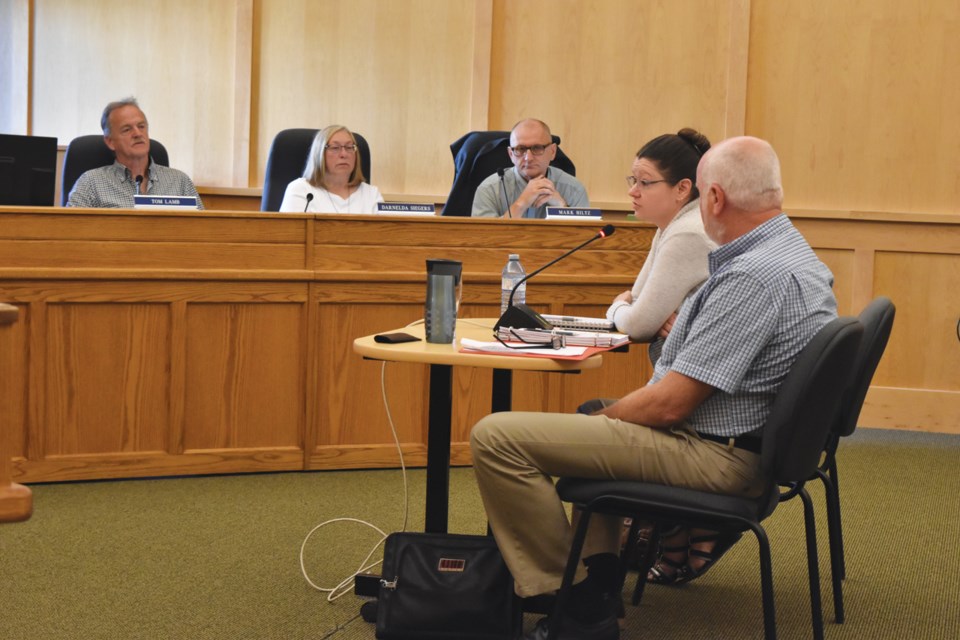Proposed changes to short-term rental (STR) rules could mean average bedroom sizes are kept to a maximum of 300 sq. feet (28 sq. metres) with no more than two people per bedroom.
That rule change and others were addressed by a delegation by Ian Winn, former director for West Howe Sound, and Jacqueline Gillis, before Sunshine Coast Regional District (SCRD) directors decided whether to give second reading to the bylaw amendments at a May 9 planning committee meeting.
Winn owns a traditional bed and breakfast, while Gillis manages several short-term rental properties on the Sunshine Coast.
Winn called the proposed changes, which include redefining short-term rentals and putting a cap on occupancy, “too restrictive,” suggesting that limiting the maximum occupants per bedroom would be a “tourism business killer,” since it would make it difficult, especially for young families, to find affordable accommodations.
A staff report, meanwhile, noted “the most problematic short-term rental accommodations appear to be those without onsite supervision.” To deal with the issue, staff recommended that a temporary use permit (TUP) be required of offsite operators.
Winn called this an “acceptable process for offsite management,” but that enforcement should be strict enough to discourage operators from seeing fines as a “cost of doing business.”
Gillis, who would require a TUP under the new rules, said she has received few complaints and vets customers to avoid conflicts with neighbours. And since she and her business partner are in close proximity to their rental units, they are able to address problems quickly, making distance less of an issue.
Following the delegation, directors questioned these and other proposed changes to SCRD bylaws intended to regulate bed and breakfasts and other STRs, which have proliferated on the Coast with the advent of online booking companies such as Airbnb.
Roberts Creek director Andreas Tize noted for transparency that a short-term rental unit is situated on his property, but has not been rented since his term began.
“This bylaw has come a long way. I like the TUP approach, I like the distinction between onsite and offsite,” said Elphinstone director Donna McMahon before adding, “I think we’re being a little too prescriptive in terms of bedroom size and number of people in bedrooms,” and cautioning it could be “very hard to enforce.”
To illustrate the need for balanced regulations, Bill Beamish, director for Gibsons, said he had past experience with accommodations in Houston, B.C., where they would get frequent complaints about one hotel operator who would conduct “bed checks” each night. “He’d open the doors, surprise people in their beds, to see how many people were in the room. We had that complaint consistently. It really was a challenge,” he said.
Directors voted in favour of sending the amendments to the board for second reading and to move ahead with a public hearing on June 18 at the Seaside Centre in Sechelt at 7 p.m.



